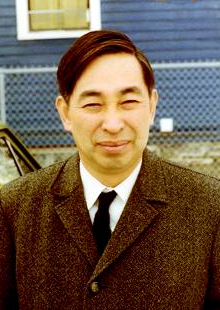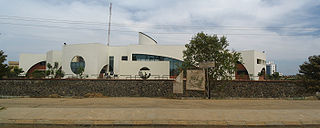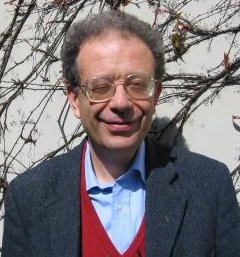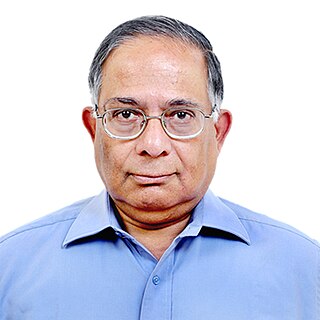
Kiyosi Itô was a Japanese mathematician who made fundamental contributions to probability theory, in particular, the theory of stochastic processes. He invented the concept of stochastic integral and stochastic differential equation, and is known as the founder of so-called Itô calculus. He also pioneered the world connections between stochastic calculus and differential geometry, known as stochastic differential geometry. He was invited for the International Congress of Mathematicians in Stockholm in 1962. So much were Itô's results useful to financial mathematics that he was sometimes called "the most famous Japanese in Wall Street".

Prof. Calyampudi Radhakrishna Rao was an Indian-American mathematician and statistician. He was professor emeritus at Pennsylvania State University and research professor at the University at Buffalo. Rao was honoured by numerous colloquia, honorary degrees, and festschrifts and was awarded the US National Medal of Science in 2002. The American Statistical Association has described him as "a living legend" whose work has influenced not just statistics, but has had far reaching implications for fields as varied as economics, genetics, anthropology, geology, national planning, demography, biometry, and medicine." The Times of India listed Rao as one of the top 10 Indian scientists of all time.

Indian Statistical Institute (ISI) is a public research university headquartered in Kolkata, West Bengal, India. It was declared an Institute of National Importance by the Government of India under the Indian Statistical Institute Act, 1959. Established in 1931, it functions under the Ministry of Statistics and Programme Implementation of the Government of India.
Peter Whittle was a mathematician and statistician from New Zealand, working in the fields of stochastic nets, optimal control, time series analysis, stochastic optimisation and stochastic dynamics. From 1967 to 1994, he was the Churchill Professor of Mathematics for Operational Research at the University of Cambridge.

Chennai Mathematical Institute (CMI) is a higher education and research institute in Chennai, India. It was founded in 1989 by the SPIC Science Foundation, and offers undergraduate and postgraduate programmes in physics, mathematics and computer science. CMI is noted for its research in algebraic geometry, in particular in the area of moduli of bundles.

Sathamangalam Ranga Iyengar Srinivasa Varadhan, is an Indian American mathematician. He is known for his fundamental contributions to probability theory and in particular for creating a unified theory of large deviations. He is regarded as one of the fundamental contributors to the theory of diffusion processes with an orientation towards the refinement and further development of Itô’s stochastic calculus. In the year 2007, he became the first Asian to win the Abel Prize.

Kalyanapuram Rangachari Parthasarathy was an Indian statistician who was professor emeritus at the Indian Statistical Institute and a pioneer of quantum stochastic calculus. Parthasarathy was the recipient of the Shanti Swarup Bhatnagar Prize for Science and Technology in Mathematical Science in 1977 and the TWAS Prize in 1996.

Jean-Michel Bismut is a French mathematician who has been a professor at the Université Paris-Sud since 1981. His mathematical career covers two apparently different branches of mathematics: probability theory and differential geometry. Ideas from probability play an important role in his works on geometry.

Mahendra G. Nadkarni is a professor emeritus at University of Mumbai. Nadkarni obtained his Ph.D. in mathematics from Brown University, the US in 1964 for his work on Ergodic theory. His research interests include Ergodic Theory, Harmonic Analysis, and Probability Theory.
Sundararaman Ramanan is an Indian mathematician who works in the area of algebraic geometry, moduli spaces and Lie groups. He is one of India's leading mathematicians and recognised as an expert in algebraic geometry, especially in the area of moduli problems. He has also worked in differential geometry: his joint paper with MS Narasimhan on universal connections has been influential. It enabled SS Chern and B Simons to introduce what is known as the Chern-Simons invariant, which has proved useful in theoretical physics.
Centre for Mathematical Sciences (CMS), with campuses at Thiruvananthapuram and Pala in Kerala, India, is a research level institution devoted to mathematics and other related disciplines like statistics, theoretical physics, computer and information sciences. The centre was incorporated in 1977 as a non-profit scientific research and training centre under the Travancore-Cochin Literary, Scientific and Charitable Societies Registration Act XII of 1955. The driving force behind the establishment of the centre was Prof. Aleyamma George, who had been Professor and Head of the Department of Statistics of University of Kerala. Since 2006, the centre is a Department of Science and Technology (India) (DST), Government of India, New Delhi Centre for Mathematical Sciences and is fully financed by DST, New Delhi.
Bhagavatula Lakshmi Surya Prakasa Rao is an Indian statistician. He was born on 6 October 1942 in Porumamilla, Andhra Pradesh. He completed his B.A. (Honours) course in Mathematics from Andhra University in 1960 and moved to the Indian Statistical Institute, Kolkata, where he completed his M.Stat in Statistics in 1962. He graduated with a Ph.D in Statistics in 1966 from Michigan State University under Herman Rubin. He won the Shanti Swarup Bhatnagar Prize for Science and Technology in Mathematical Sciences in 1982 from the Government of India, the Outstanding Alumni award from the Michigan State University in 1996, and the National Award in memory of P V Sukhatme in 2008 from the Government of India. The Indian Society for Probability and Statistics awarded him the C R Rao Lifetime Achievement Award in 2022. He is an elected Fellow of the Institute of Mathematical Statistics (1983), Indian National Science Academy (1984), Indian Academy of Sciences (1992), and National Academy of Sciences (1993).
Gopinath Kallianpur (1925–2015) was an Indian American mathematician and statistician who became the first director of the Indian Statistical Institute (1976–79) under its new Memorandum of Association. During his tenure as the director the new centre of ISI at Bangalore, Karnataka was founded.

Kalyan Bidhan Sinha is an Indian mathematician. He is a professor at the Jawaharlal Nehru Centre for Advanced Scientific Research, and Professor Emeritus for life of the Indian Statistical Institute.
Francesco Mainardi is an Italian physicist and mathematician.
Vivek Shripad Borkar is an Indian electrical engineer, mathematician and an Institute chair professor at the Indian Institute of Technology, Mumbai. He is known for introducing analytical paradigm in stochastic optimal control processes and is an elected fellow of all the three major Indian science academies viz. the Indian Academy of Sciences, Indian National Science Academy and the National Academy of Sciences, India. He also holds elected fellowships of The World Academy of Sciences, Institute of Electrical and Electronics Engineers, Indian National Academy of Engineering and the American Mathematical Society. The Council of Scientific and Industrial Research, the apex agency of the Government of India for scientific research, awarded him the Shanti Swarup Bhatnagar Prize for Science and Technology, one of the highest Indian science awards for his contributions to Engineering Sciences in 1992. He received the TWAS Prize of the World Academy of Sciences in 2009.
The σ-algebra of τ-past, is a σ-algebra associated with a stopping time in the theory of stochastic processes, a branch of probability theory.









